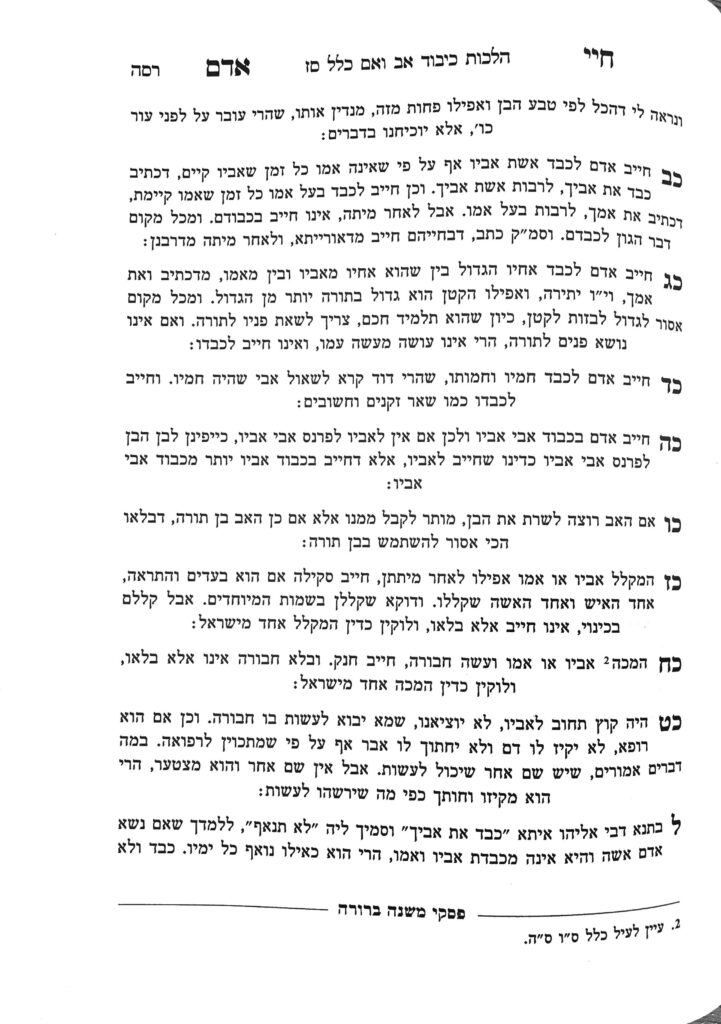We are beginning siman 30, in which the Chayei Adam does not discuss any halacha per se, but different drashos of Chazal regarding the mitzvah of kibud av v’eim.
The Chayei Adam writes that the Tanna D’vei Eliyahu, which contains lessons taught by Eliyahu Hanavi, points out that the Torah teaches us the mitzvos of kibud av v’eim and lo sinaf (issur of adultery) close to each other. Their proximity serves to teach us that if a man marries a woman who does not give kavod to her in-laws (his parents), it is as if he commits adultery his entire life. Part of a woman’s responsibility is to give kavod to her in-laws, so marrying a woman whom it is inappropriate to marry is akin to not being married at all. Thus, it is akin to living as a no’eif and no’efes their entire marriage.
The Tanna D’vei Eliyahu continues, and writes that the Torah also teaches us the mitzvos of kibud av v’eim and lo signov close to each other. (Lo signov of the aseres hadibros refers to kidnapping rather than stealing.) The proximity of these mitzvos comes to teach that if one has children who are not mechabeid their parents, it is as though the parents are kidnappers. The Tanna D’vei Eliyahu does not explain further. One suggestion is that he means that it is the among the responsibilities of a parent to teach their children how to act. Hashem entrusts children to parents as a pikadon, a deposit, for the parents to tend and nurture. Part of that responsibility includes teaching the children about the mitzvah of kibud av v’eim. If the parents do not fulfill that component of their job, they do not deserve the deposit with which they have been entrusted. Thus, by not teaching their children, they do not have a right to this pikadon, and it is akin to kidnapping on the part of the parents for having these children.
On this regard, Rav Hirsch writes that the appropriate way to relate to one’s children is to recognize that they are a pikadon which one received from Hashem. They do not belong to the parents. Chavah calls her first child Kayin, thinking kanisi ish, that the child is hers. But that did not last; eventually Kayin and his descendants were destroyed. Chavah made the same mistake regarding Hevel. When she was given Shais, she understood that shas li zera acher, Shais was merely “placed” by her, but was not hers inherently.
The Chayei Adam refers the learner to learn some parts of Sefer Chassidim which discuss kibud av v’eim. Be’ezras Hashem, we will discuss some of these points in the next few days.



